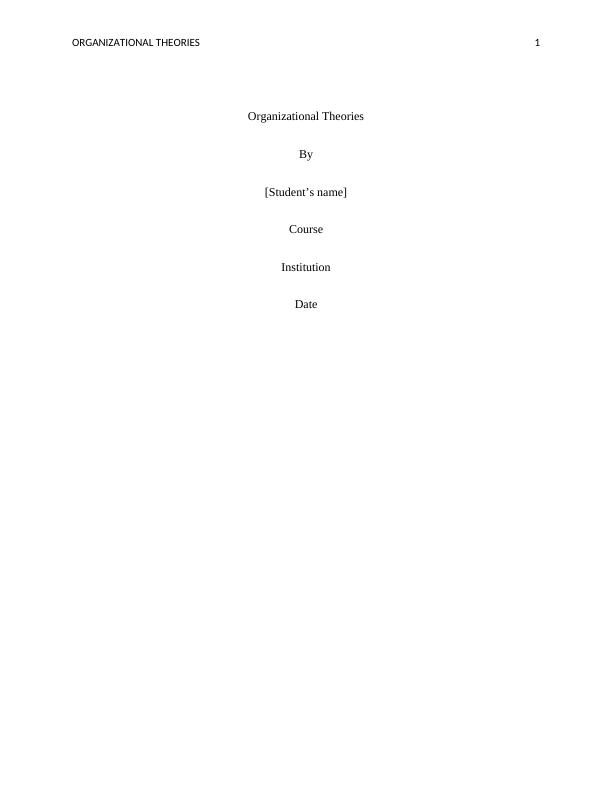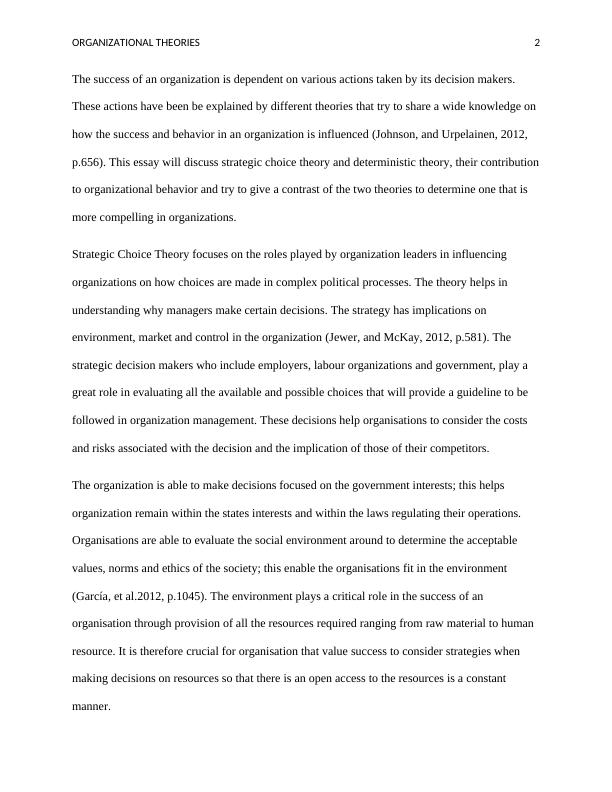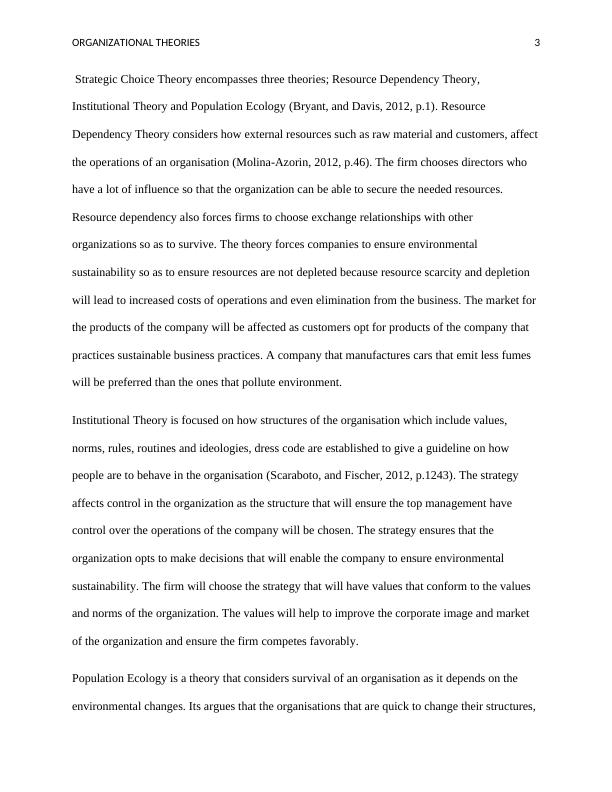Organizational Theories and Their Contribution to Organizational Behavior
7 Pages1581 Words489 Views
Added on 2023-06-11
About This Document
This essay discusses strategic choice theory and deterministic theory, their contribution to organizational behavior and tries to give a contrast of the two theories to determine one that is more compelling in organizations.
Organizational Theories and Their Contribution to Organizational Behavior
Added on 2023-06-11
ShareRelated Documents
End of preview
Want to access all the pages? Upload your documents or become a member.
Strategic Choice and Deterministic Organizational Models
|11
|3114
|49
Judgment and Decision-making
|6
|1399
|34
Report on Resource Dependency Theory, Institutional Theory and Population Ecology Theory
|10
|2976
|130
Analysis of Theories Influencing Organizational Action
|11
|2958
|362
Organizational Theories: A Critical Analysis of Strategic Choice, Deterministic Theories, and Resource-Based Theory
|10
|3126
|274
The Prominent Role of Managers in Influencing Organization Outcomes
|11
|2608
|251



